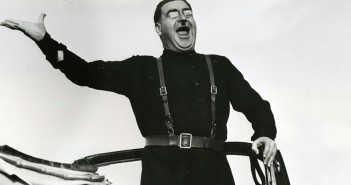
Discovering Georgian Cinema: Pirosmani Review
Pirosmani jolts into motion with a haunting score and an ambiguous painting that offers a silently menacing backdrop for the opening credits. A wonderland of deep focus compositions emerges as we track through living paintings that are saturated with color, texture, and culture. We are presented with surreal imagery and disorienting cuts that tell the story of Georgian primitivist painter Niko Pirosmani …

